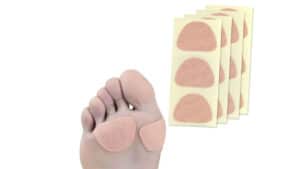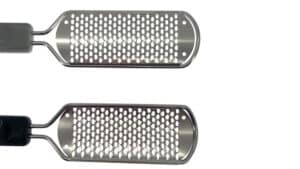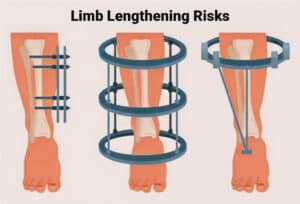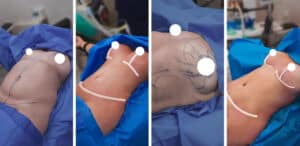
- February 17, 2023
- 12:00 am
Can Men Have Liposuction? 5 Surprising Benefits of Liposuction for Men
Table of Contents
Introduction:
Liposuction is a cosmetic surgery procedure that has become increasingly popular among men in recent years. While many people believe that liposuction is only for women, the truth is that it can be an effective way for men to achieve a more toned and defined physique. In this article, we will address the question, “Can men have liposuction?” and provide a comprehensive guide to the procedure, its benefits, and recovery.
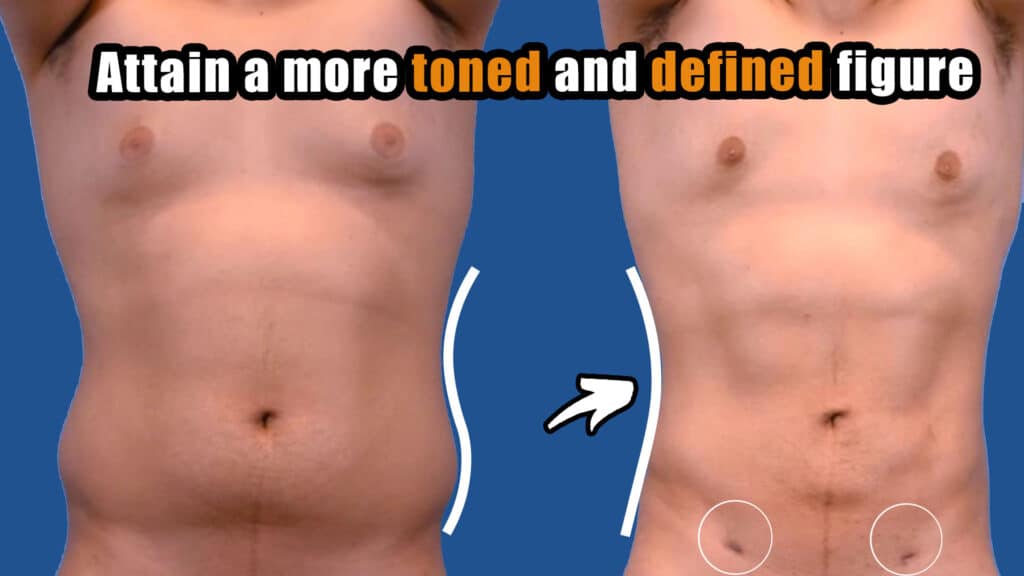
Can Men Have Liposuction?
Yes, men can have liposuction. Liposuction is a cosmetic surgical technique that removes excess fat from various parts of the body to help men attain a more toned and defined figure. While liposuction is often associated with women, it is a procedure that is becoming increasingly popular among men who want to enhance their appearance and improve their confidence.
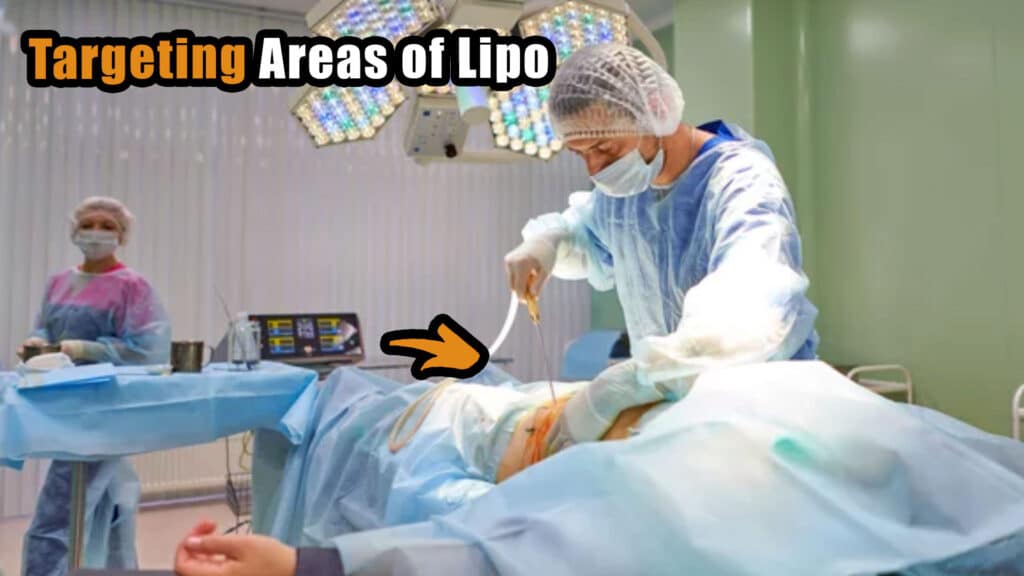
The Procedure:
Liposuction is a procedure that is performed under general anesthesia. During the procedure, a plastic surgeon makes small incisions in the targeted areas of the body and inserts a thin tube (cannula). The cannula is used to suction out excess fat, contouring the body to create a more toned and defined appearance.
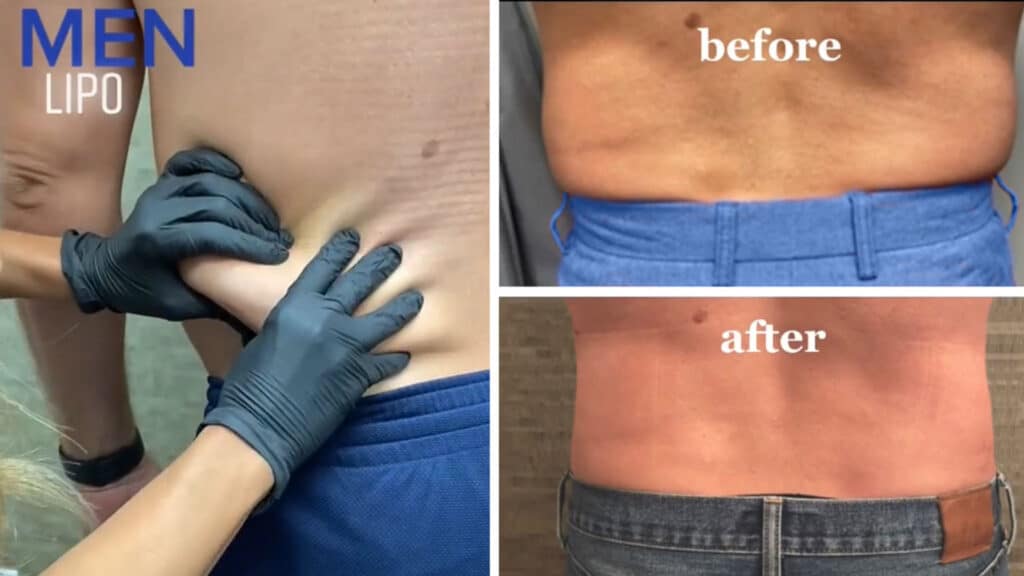
The Benefits:
There are many benefits to having liposuction, including:
- Improved body contours
- Enhanced self-confidence
- Reduced risk of obesity-related health issues
- Improved physical performance
- Improved mental health
While liposuction is not a weight-loss solution, it can be an effective way to eliminate stubborn pockets of fat.
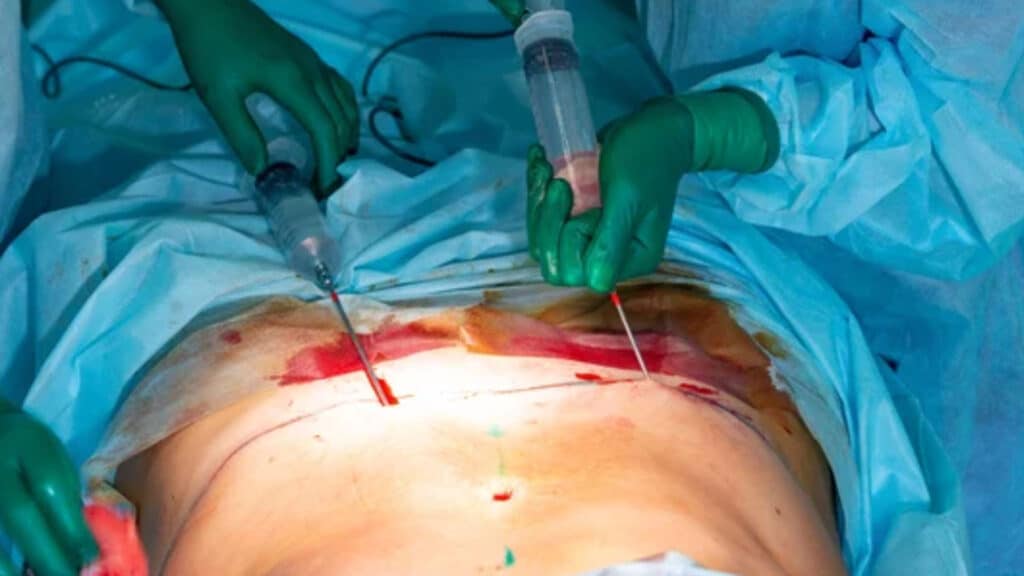
The Risks:
Like any surgical procedure, liposuction carries some risks. These risks include:
- Bleeding
- Infection
- Nerve damage
- Scarring
- Irregularities in the skin’s surface
To minimize these risks, it is important to choose a board-certified plastic surgeon who is experienced in performing liposuction.
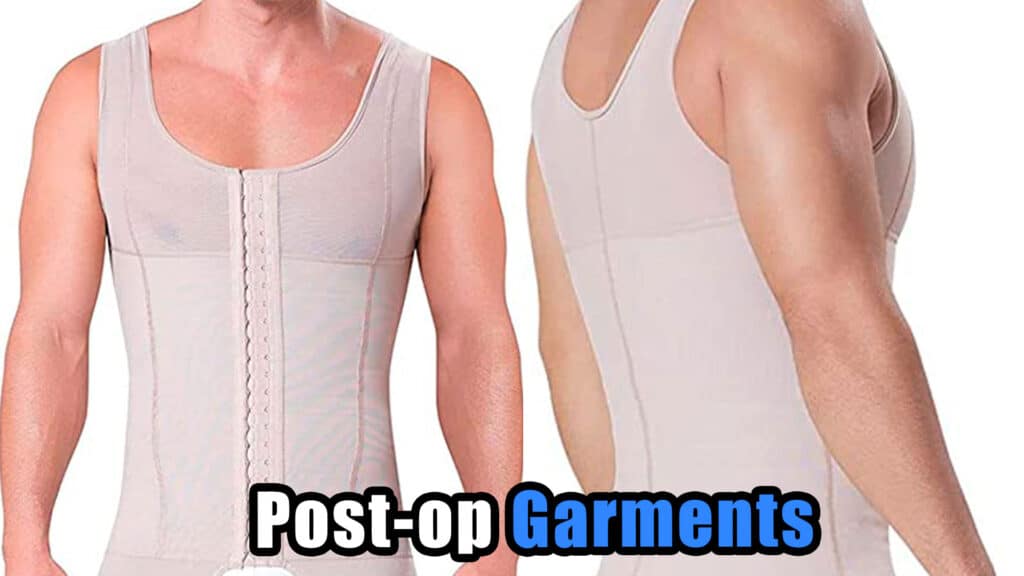
Recovery:
Recovery from liposuction can take several weeks, and it is essential to follow your plastic surgeon’s post-operative care instructions carefully to ensure a successful recovery. Some tips for recovery include:
- Wear compression garments as directed by your surgeon to reduce swelling and promote healing.
- Take pain medication as prescribed by your surgeon to manage any discomfort.
- Avoid strenuous activity for several weeks following the procedure.
- Follow a healthy diet regimen to maintain your new body contours.
It is important to note that while the initial recovery period may take several weeks, it can take several months for the full results of the procedure to be visible.
Common Complications and How to Manage Them:
| Common Complication | Symptoms | Management |
|---|---|---|
| Swelling | Increased size in the treated area | Wear compression garments as directed by your surgeon, apply ice packs to the area, and avoid strenuous physical activity until the swelling subsides. |
| Bruising | Discoloration and tenderness in the treated area | Apply warm compresses to the area to help promote healing, and avoid taking blood-thinning medications or supplements before the procedure. |
| Numbness | Loss of sensation in the treated area | This is a normal part of the healing process and should gradually improve over time. |
| Infection | Redness, swelling, fever, and pain in the treated area | Contact your surgeon immediately if you suspect an infection, and follow all instructions for wound care and hygiene to prevent infection. |
| Scarring | Visible marks or scars on the skin | Scarring is a risk of any surgery, but it can be minimized by following post-operative care instructions carefully and avoiding direct sunlight or tanning beds until the incision sites have fully healed. |
| Irregularities | Uneven or lumpy appearance in the treated area | Your surgeon may recommend additional procedures, such as fat transfer or touch-up liposuction, to correct any irregularities or achieve the desired result. |
It’s important to note that complications are relatively rare with liposuction, and most patients experience a smooth and uneventful recovery. However, it’s always best to be prepared and informed about potential risks and how to manage them.
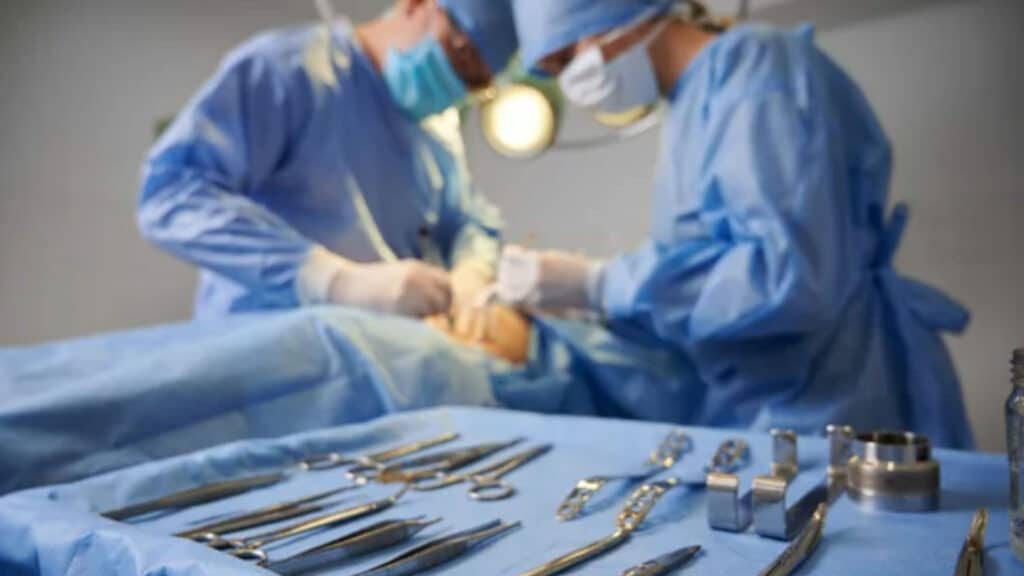
When to Seek Medical Attention:
If you experience any unusual symptoms or complications after liposuction, it is important to seek medical attention immediately. Some signs that you should contact your surgeon include:
- Excessive bleeding
- Severe pain
- Shortness of breath
- Chest pain
- Irregular heartbeat
- Signs of infection, such as fever or redness and swelling around the incision site.
It is also important to attend all follow-up appointments with your plastic surgeon to ensure that your recovery is progressing as expected.
Patient Testimonials:
One way to gain insight into the effectiveness and safety of liposuction is to read testimonials from other men who have undergone the procedure. Here are a few examples of what men have said about their experience with liposuction:
- “I’ve always struggled with love handles, and no amount of diet and exercise seemed to make a difference. After having liposuction, I finally feel confident and comfortable in my own skin.”
- “I was hesitant to have liposuction because I was worried about the risks and recovery time, but it was one of the best decisions I’ve ever made. My plastic surgeon was incredibly skilled and the recovery was much easier than I anticipated. I highly recommend it to any man who wants to improve his physique.”
- “Liposuction was the kickstart I needed to get back on track with my fitness goals. After seeing the results, I was motivated to continue exercising and eating healthy, and now I feel better than ever.”
Conclusion:
Liposuction is an effective procedure that can help men achieve a more toned and defined physique. While there are some risks associated with the procedure, these can be minimized by choosing a board-certified plastic surgeon and following all post-operative care instructions carefully. With proper care and maintenance, the results of liposuction can last a lifetime, providing men with enhanced self-confidence and a better quality of life. So, to answer the question “Can men have liposuction?”, the answer is a resounding yes!

FAQ
What is the average cost of liposuction for men?
The cost of liposuction for men can vary depending on several factors, such as the size and number of areas being treated, the surgeon’s experience and expertise, the type of anesthesia used, and the geographic location of the practice. On average, the cost of liposuction for men can range from $500 to $700 per area. However, this is just an estimate, and the actual cost may be higher or lower depending on the individual case.
Are there any age restrictions for men who want to have liposuction?
There is no strict age limit for men who want to have liposuction, as the suitability of the procedure depends more on an individual’s health and physical condition than on their age alone. However, it’s generally recommended that patients be at least 18 years of age and have fully developed and stabilized body contours before undergoing liposuction. For older patients, their overall health and medical history will also be taken into consideration, as some health conditions may increase the risks associated with surgery.
How long does the liposuction procedure take for men?
The duration of the liposuction procedure for men can vary depending on the extent and number of areas being treated. In general, the procedure can take anywhere from 1-4 hours. The length of the surgery may also depend on the type of liposuction being performed, as well as the patient’s individual anatomy and the surgeon’s experience.
Can men have liposuction on multiple areas of their body at once?
Yes, men can have liposuction on multiple areas of their body at once. In fact, it’s common for men to have liposuction on multiple areas, as the procedure can be used to treat stubborn pockets of fat in several areas of the body, including the abdomen, chest, flanks, back, arms, thighs, and neck. Liposuction on multiple areas can be performed during a single surgical session, but the total duration of the procedure may be longer, depending on the number and extent of the areas being treated.
What type of anesthesia is used for liposuction in men?
The type of anesthesia used for liposuction in men can vary depending on the extent and duration of the procedure, as well as the patient’s individual needs and preferences. In general, liposuction can be performed under local anesthesia with sedation or under general anesthesia.
With local anesthesia, the surgeon will inject a numbing solution into the targeted areas, and the patient will be given sedation medication to help them relax during the procedure. This option is typically used for smaller areas or for patients who prefer to be awake during the procedure.
With general anesthesia, the patient will be completely unconscious and not feel any pain during the procedure. This option is typically used for larger areas or for patients who prefer to be asleep during the procedure.
How long does it take to recover from liposuction for men?
Recovery time after liposuction for men can vary depending on the extent of the surgery and the number of areas treated. In general, most men can expect to take around 1-2 weeks off work and other regular activities, though it may take several months to fully recover and see final results.
After the procedure, patients typically experience some swelling, bruising, and discomfort in the treated areas. These symptoms can usually be managed with pain medication and compression garments. Patients will need to wear these compression garments for several weeks to help reduce swelling and promote healing.
During the recovery period, patients should avoid strenuous activity and exercise for several weeks, as this can increase the risk of complications and prolong the healing process. Walking and light activity can help improve circulation and promote healing, but it’s important to follow the surgeon’s post-operative instructions and avoid any activities that could put too much strain on the treated areas.
Most patients will have follow-up appointments with their surgeon to monitor their progress and ensure that they are healing properly. It’s important to attend all follow-up appointments and to notify the surgeon if any unusual symptoms or complications develop during the recovery period.
Will liposuction help men to lose weight?
Liposuction is not designed to help men lose a significant amount of weight. The primary goal of liposuction is to remove stubborn pockets of fat, such as the abdomen, chest, flanks, back, arms, thighs, and neck, that are resistant to diet and exercise.
While some weight loss may occur after the procedure, it’s typically minimal and varies from person to person. The amount of fat removed during the procedure is generally not significant enough to cause a noticeable decrease in overall body weight. Additionally, liposuction does not address issues related to excess skin or muscle tone.
Can men have liposuction if they have underlying health conditions?
Men who smoke or use tobacco products may also be at higher risk of complications during and after the procedure. Smoking can affect circulation and increase the risk of blood clots, infections, and other complications.
If a man has an underlying health condition, the surgeon will need to carefully evaluate his medical history and current health status to determine if liposuction is a safe option. In some cases, the surgeon may recommend additional medical testing or clearance from the patient’s physician before proceeding with the procedure.
How can men maintain the results of liposuction over the long term?
Maintaining the results of liposuction over the long term requires a commitment to a healthy lifestyle that includes regular exercise, a balanced diet, and good overall health practices. Here are some tips for men to maintain the results of liposuction:
- Follow a healthy diet: Eating a healthy, balanced diet that is rich in fruits, vegetables, whole grains, and lean protein can help men maintain their weight and reduce the risk of regaining fat in the areas that were treated with liposuction.
- Exercise regularly: Regular exercise is crucial for maintaining a healthy weight and overall fitness. Men should aim for at least 30 minutes of moderate exercise per day, such as brisk walking, cycling, or swimming.
- Drink plenty of water: Staying well-hydrated can help men feel full and reduce the urge to overeat. It can also help flush out toxins from the body and keep the skin looking healthy.
- Avoid smoking and excessive alcohol consumption: Nicotine use and excessive alcohol intake can have a severe impact on the body’s circulation and overall health, increasing the risk of complications and decreasing the efficacy of liposuction.
- Follow the post-operative care instructions: The post-operative care instructions provided by the surgeon should be followed carefully to ensure a smooth and safe recovery. This includes wearing compression garments, avoiding strenuous activities, and taking any prescribed medications as directed.
- Stay active and maintain a healthy weight: Regular physical activity and maintaining a healthy weight can help reduce the risk of regaining fat in the treated areas.
- Get regular follow-up appointments: Regular follow-up appointments with the surgeon can help monitor the results of the procedure and address any concerns or complications that may arise.
